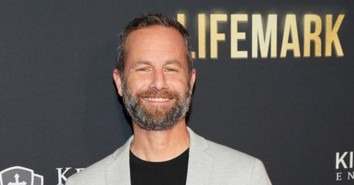New Study Reveals Lack of Biblical Worldview May Be Fueling America's Mental Health Crisis

According to a new study by the Cultural Research Center at Arizona Christian University, the increase in mental health issues has to do with a lack of a biblical worldview. The study, released last week, found that 56 percent of Generation Z and 49 percent of millennials often struggle with anxiety, fear, and depression, The Christian Post reports. Generally speaking, one in three adults from these generations has at least one diagnosable mental disorder.
Dr. George Barna, director of research, views a direct correlation between mental health challenges and the lack of a biblical worldview, which the Cultural Research Center defines as "a means of experiencing, interpreting, and responding to reality in light of biblical perspectives."
Barna also noted that only 1% of Generation Z and 2% of millennials possess a biblical worldview. He stated that it is "not uncommon to find a young adult who trusts feelings more than facts, sees no inherent value to life, believes in Karma, and rejects the existence of the biblical God."
"Add to this a lack of any sense of purpose or meaning and the idea that truth is subjective," Barna explained. "This common set of components results in a lifestyle that is inconsistent, chaotic, frustrating, and lacking hope. Anxiety, depression, and fear are virtually inescapable in such a life."
Barna also pointed out several beliefs he considers to lead to mental unrest among young people. Seven out of ten individuals under 40 said their life lacks a clear purpose, while four out of five who reject God reported frequent experiences of fear and anxiety.
"The lifestyle that results from these common worldview components is one of chaos and fear," Barna said. "However, embracing a biblical worldview offers a sense of purpose, security, and peace that can alleviate many of these mental health challenges."
He also stated that syncretism — described as a "blend of conflicting beliefs drawn from various worldviews" — was the dominant worldview among young Americans, adding that it's "not surprising that anxiety, depression, and fear are rampant among young adults who adopt syncretism."
"Without a solid foundation of truth, their lives become inconsistent and chaotic," he said, emphasizing that "the biblical worldview, by contrast, provides a framework that fosters emotional stability."
Although some situations require mental health treatments, such as counseling, prescription drugs, or physical therapy, Barna said that other mental health struggles may stem from "worldview components that trigger and sustain the condition."
"If people instead embraced the core tenets of the biblical worldview, their lives would not be perfect," Barna concluded, "but they would avoid many of the emotional and psychological pitfalls we're seeing today."
The report also looked at the mental health of individuals whose worldview contrasts with a biblical worldview. Between those who are not engaged in both political involvement and Christian faith, 82 percent reported frequent experiences of anxiety, depression, and fear, compared to 67 percent of respondents who were more engaged.
Meanwhile, incidents of fear, anxiety, and depression were higher (46 percent) among those who believe gifted mediums can communicate with the spirits of the dead, compared to 34 percent of those who do not share this belief.
In the same way, 40 percent of respondents who consider Mother Earth or the Universe" as an important guide reported mental health challenges, compared to 25 percent who did not. Concurrently, individuals as "consistently liberal" on social and political issues, 38 percent experienced frequent anxiety, depression or fear, while only 22 percent of those who did not identify as consistently liberal reported the same challenges.
The findings of the study were based on interviews conducted in January with 2,000 U.S. adults aged 18 or older, with a sampling error of plus or minus 2 percentage points at the 95 percent confidence level.
Photo Credit: ©GettyImages/tadamichi

Originally published October 01, 2024.







